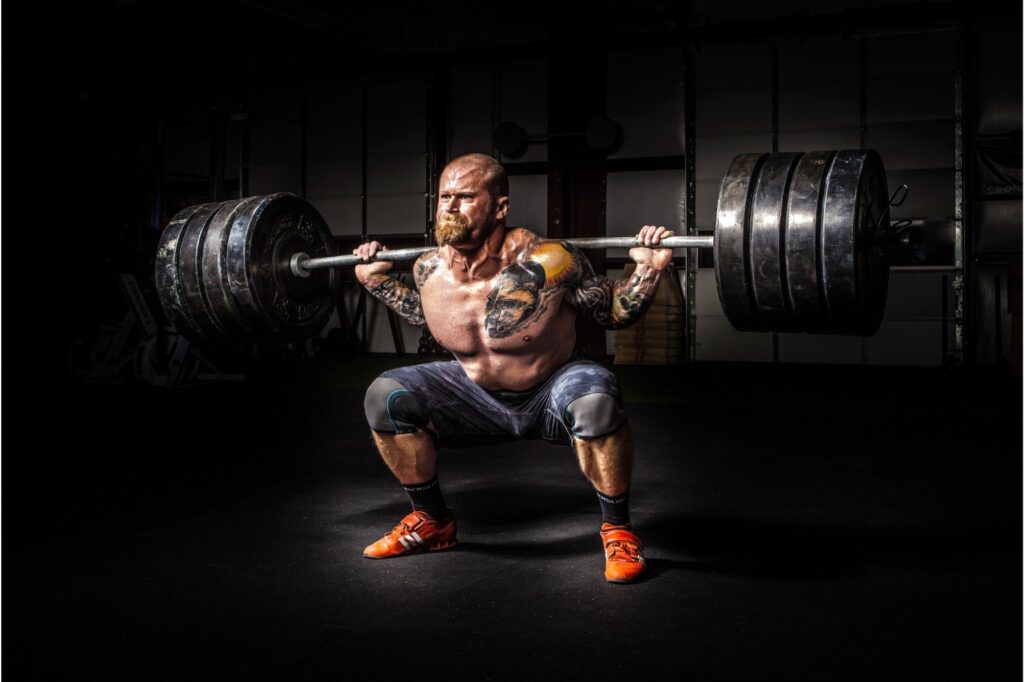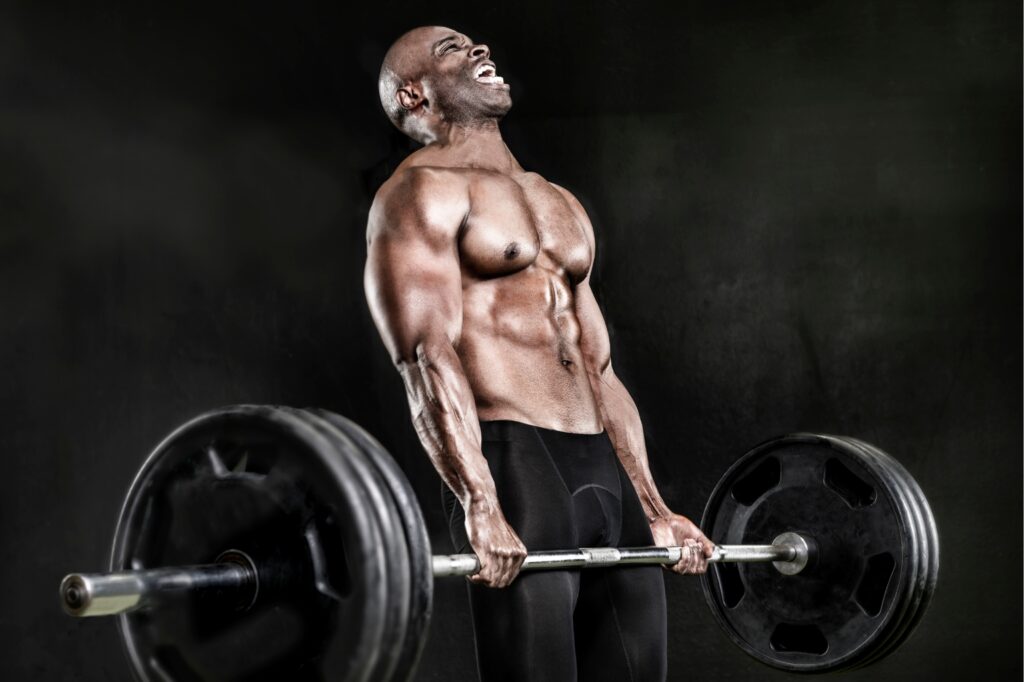Is it Good to Lift Heavy Weights Sometimes? Benefits and Considerations for Different Age Groups

If you’re interested in getting stronger, building muscle, or improving your physical performance, you’ve probably heard that lifting heavy weights is one of the best ways to achieve these goals. But is it good to lift heavy weights sometimes? And is this approach suitable for everyone, regardless of their age or fitness level? In this article, we’ll explore the benefits and considerations of lifting heavy weights and provide recommendations for different age groups.
What Does It Mean to Lift Heavy Weights?
Before we dive into the benefits and considerations of lifting heavy weights, let’s define what we mean by “heavy.” In general, lifting heavy weights means using a weight that is challenging for you to lift for a certain number of repetitions. This weight is typically around 70-85% of your one-rep max, which is the maximum amount of weight you can lift for one repetition with good form.
Benefits of Lifting Heavy Weights
Now that we’ve defined what lifting heavy weights means, let’s explore the benefits of this approach to strength training.
Increased Muscle Size and Strength

One of the most significant benefits of lifting heavy weights is that it can lead to increased muscle size and strength. When you lift heavy weights, you create microtears in your muscle fibers, which then repair and grow stronger during the recovery period. This process is known as muscle hypertrophy and is the foundation of building muscle.
Improved Bone Density
 Lifting heavy weights can also improve your bone density, which is especially important as you age. As you lift heavy weights, your bones experience stress, which prompts them to adapt and become stronger over time. This can help reduce the risk of osteoporosis and other bone-related conditions.
Lifting heavy weights can also improve your bone density, which is especially important as you age. As you lift heavy weights, your bones experience stress, which prompts them to adapt and become stronger over time. This can help reduce the risk of osteoporosis and other bone-related conditions.
Enhanced Metabolism
 Lifting heavy weights can also increase your metabolism, leading to greater calorie burning and weight loss. This occurs because lifting heavy weights creates a significant metabolic demand on your body, requiring more energy to repair and recover from the workout.
Lifting heavy weights can also increase your metabolism, leading to greater calorie burning and weight loss. This occurs because lifting heavy weights creates a significant metabolic demand on your body, requiring more energy to repair and recover from the workout.
Improved Physical Performance
 Lifting heavy weights can also improve your physical performance, regardless of your sport or activity of choice. When you lift heavy weights, you develop greater overall strength, which translates to improved speed, power, and endurance.
Lifting heavy weights can also improve your physical performance, regardless of your sport or activity of choice. When you lift heavy weights, you develop greater overall strength, which translates to improved speed, power, and endurance.
Considerations for Different Age Groups
While lifting heavy weights has many benefits, it’s essential to consider your age and fitness level when incorporating this type of training into your routine. Here are some considerations for different age groups:
Under 50s
 If you’re under 50 years old and relatively healthy, lifting heavy weights can be a safe and effective way to improve your fitness and strength. However, it’s important to start slowly and progress gradually to avoid injury. Begin with a weight that is challenging but manageable for you, and increase the weight gradually over time.
If you’re under 50 years old and relatively healthy, lifting heavy weights can be a safe and effective way to improve your fitness and strength. However, it’s important to start slowly and progress gradually to avoid injury. Begin with a weight that is challenging but manageable for you, and increase the weight gradually over time.
Over 50s
 If you’re over 50 years old, lifting heavy weights can still be an effective way to improve your fitness and strength, but it’s important to be cautious and take additional precautions. As you age, your joints and connective tissues become less resilient, making you more prone to injury. It’s essential to start with lighter weights and progress slowly to allow your body to adapt to the stress of lifting heavy weights.
If you’re over 50 years old, lifting heavy weights can still be an effective way to improve your fitness and strength, but it’s important to be cautious and take additional precautions. As you age, your joints and connective tissues become less resilient, making you more prone to injury. It’s essential to start with lighter weights and progress slowly to allow your body to adapt to the stress of lifting heavy weights.
Beginners
If you’re new to weightlifting, it’s crucial to start with light weights and focus on proper form and technique. Lifting heavy weights with poor form can lead to injury and can be counterproductive to your fitness goals. Start with bodyweight exercises or light weights and gradually progress over time.
FAQs
Is it safe to lift heavy weights every day?
 No, it’s not safe to lift heavy weights every day. Your muscles need time to recover and repair after a heavy weightlifting session, and lifting every day can lead to overtraining, injury, and burnout. It’s recommended to have at least one rest day between weightlifting sessions to allow your muscles to recover.
No, it’s not safe to lift heavy weights every day. Your muscles need time to recover and repair after a heavy weightlifting session, and lifting every day can lead to overtraining, injury, and burnout. It’s recommended to have at least one rest day between weightlifting sessions to allow your muscles to recover.
Can lifting heavy weights help with weight loss?
 Yes, lifting heavy weights can help with weight loss by increasing your metabolism and calorie burning. However, it’s essential to combine weightlifting with a healthy diet and cardio exercise to maximize weight loss results.
Yes, lifting heavy weights can help with weight loss by increasing your metabolism and calorie burning. However, it’s essential to combine weightlifting with a healthy diet and cardio exercise to maximize weight loss results.
Can lifting heavy weights lead to bulky muscles in women?
 No, lifting heavy weights will not necessarily lead to bulky muscles in women. Women have lower levels of testosterone, which is the hormone responsible for muscle hypertrophy. However, lifting heavy weights can still lead to increased muscle size and strength, which can have many health and fitness benefits.
No, lifting heavy weights will not necessarily lead to bulky muscles in women. Women have lower levels of testosterone, which is the hormone responsible for muscle hypertrophy. However, lifting heavy weights can still lead to increased muscle size and strength, which can have many health and fitness benefits.
Can lifting heavy weights cause joint pain?
 Lifting heavy weights can cause joint pain if you don’t use proper form and technique or if you lift weights that are too heavy for you. It’s essential to start with lighter weights and focus on proper form to avoid joint pain and injury.
Lifting heavy weights can cause joint pain if you don’t use proper form and technique or if you lift weights that are too heavy for you. It’s essential to start with lighter weights and focus on proper form to avoid joint pain and injury.
Can older adults lift heavy weights?
 Yes, older adults can lift heavy weights, but it’s important to take additional precautions and start with lighter weights to avoid injury. As we age, our joints and connective tissues become less resilient, making us more prone to injury. It’s essential to progress slowly and listen to your body to avoid injury and maximize the benefits of weightlifting.
Yes, older adults can lift heavy weights, but it’s important to take additional precautions and start with lighter weights to avoid injury. As we age, our joints and connective tissues become less resilient, making us more prone to injury. It’s essential to progress slowly and listen to your body to avoid injury and maximize the benefits of weightlifting.
